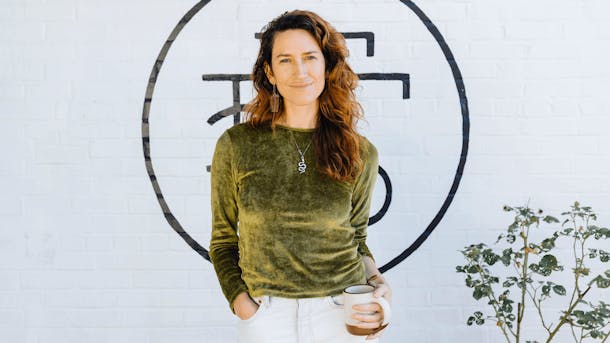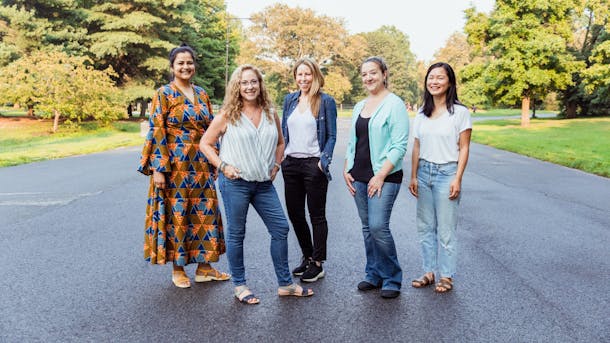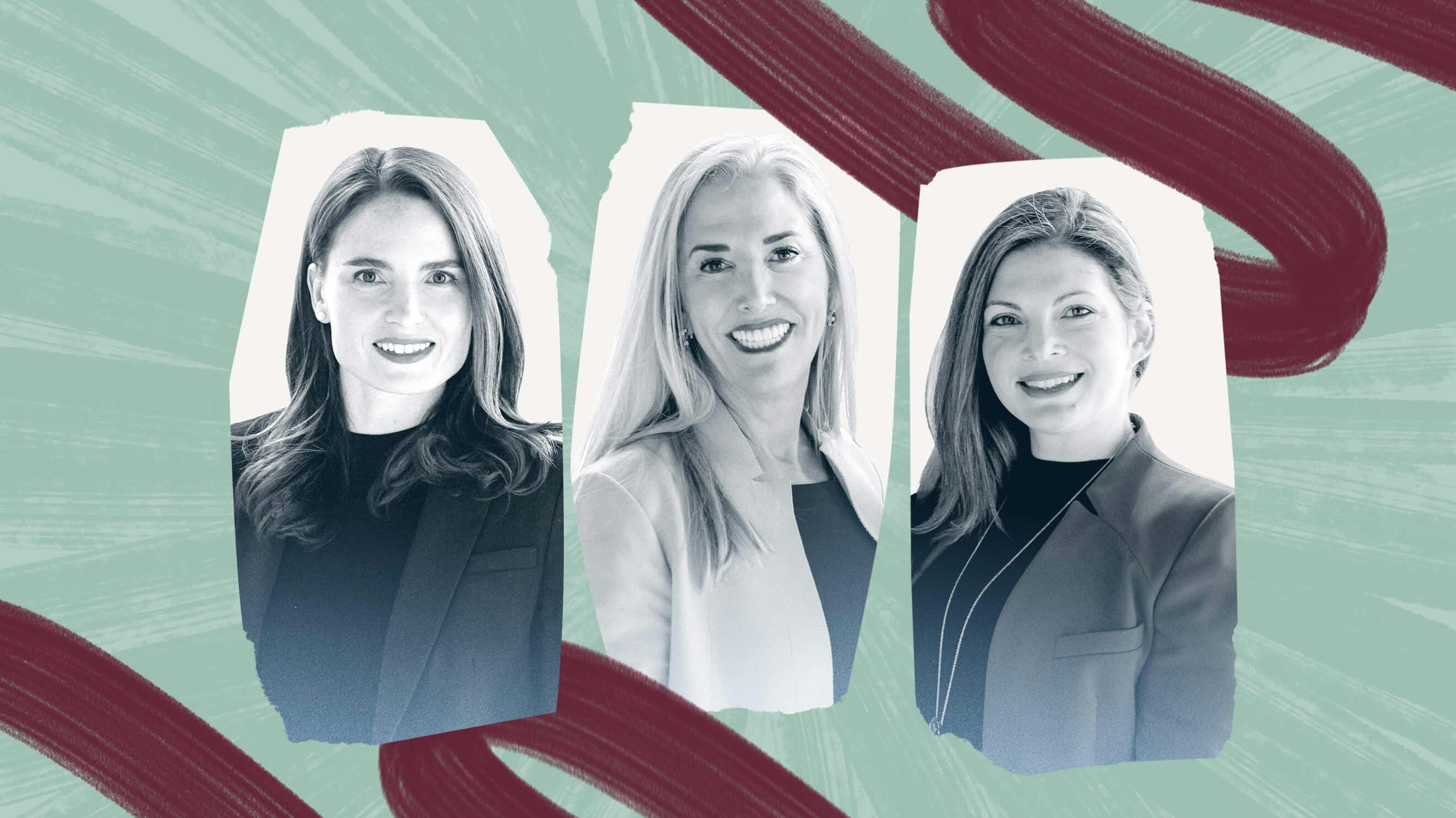
Feature Story
Only women in the room
Tired of seeing so few women-founded companies funded by venture capital, The Artemis Fund is leading the charge to get more money in the hands of women founders.
When Leslie Goldman Tepper, co-founder and managing partner at The Artemis Fund, began angel investing, she noticed that the rooms she was stepping into felt strangely familiar — and not in a good way. Having spent her career to that point in corporate settings, first as an in-house counsel for several large corporations and then as an executive recruiter, she had often been the only woman in the room. Now, as an investor, she saw a similar scenario.
“There just weren't enough women presenting at pitch competitions, and there were no female investors in the room,” Leslie said. Her experience reflects what is now well-publicized — and pretty bleak — data reflecting how money and deals flow through the venture capital (VC) system. In 2021, only 2.3% of VC funding went to companies with all-female founding teams, and in the first quarter of 2022, it was down to 2%. On the funding side, only 11% of VC decision-makers in the U.S. are women.
Those numbers speak to the power of the existing, mostly white male VC ecosystem that has for a long time dictated where venture funding goes. “The network of funders out in Silicon Valley has historically been composed of non-diverse men, who often invest in one another's funds,” Leslie said. “They send each other companies from their networks, so it’s no surprise that funding goes mostly to the same group of male founders.”
The result of the network bias: There is a lack of funding for the essential innovations needed to solve some of the biggest, messiest global issues we’re facing today. “Solving for the world’s problems requires inclusion of the other 50% of problem solvers,” Leslie said. “If we leave women out of this system, as investors and as founders, that means extraordinary ideas — ideas that can help solve our most pressing environmental and societal problems — are not getting funded. We need to change that.”

If women are left out of innovation, we're leaving out half the population; we're leaving out extraordinary ideas that are not getting funded.
It’s the desire to fuel this innovation, specifically through fintech, e-commerce, and care tech (technology for caregivers), that motivated Leslie and co-founders Diana Murakhovskaya and Stephanie Campbell to found The Artemis Fund. The venture capital firm, based in Houston, Texas, provides seed-stage funding exclusively to women-founded, women-led companies that will advance financial equity and/or sustainability. Having closed their first fund in 2021, the co-founders have invested in 17 women-led companies and are in the midst of raising their second fund.
But before they took their seats as investors, all three co-founders had been the only women in many rooms themselves as they navigated their early careers.
All together now: “I was the only woman in the room.”
The first time Leslie took on gender inequality, she was in elementary school. She was the only girl on an all-boys baseball team — and the pitcher. “I dreamed that I would be the first girl to be able to play on a major league baseball team,” she said.
While the MLB dream wasn’t meant to be, it would be the first of a series of ambitious goals: She trained as an opera singer, earned a degree in women’s studies, then got a law degree. During her career in corporate law and executive recruiting that followed, Leslie often felt like she had joined another boys’ team.
“I saw the ideas I shared ignored until they were picked up and shared by a male colleague at the same table. I saw a lot of mansplaining. I saw a lot of lip service to diversity and equity, with not a lot of follow-through,�” she said, reflecting all-too-common experiences of women in corporate settings. Despite these challenges, in each role she held, Leslie focused on lifting up women’s experiences and voices — leading women’s professional networks, working in recruiting specifically to help diversify executive teams, and making sure women’s achievements were represented at company meetings. “I became the squeaky wheel,” she said.
When she began angel investing for herself during that time, she saw women once again pushed to the fringes of a biased system — and she recognized the impact. “I noticed that women were not represented at the bottom of the funnel, seeking investment and getting money,” she said. “If you don’t have women at the bottom of the pipeline, they’re not going to show up at the top as founders and CEOs; they’re not going to have the opportunity to take a company public.” Leslie continued: “I knew then that I wanted to focus my life, my money, and my time on helping women succeed at that early phase — to get women in the pipeline at the beginning.”

Like Leslie, Artemis co-founder Diana Murakhovskaya spent her early career in spaces often dominated by men. “I studied mechanical engineering at a mostly male school and then worked on Wall Street in investment banking and commodities,” she said. “I was often the only woman in the room.” When she did have the opportunity to connect with other women in the industry, she noticed a disappointing resistance to any kind of camaraderie. “The message I received as a woman was, ‘I struggled and so should you,’” Diana said.
But Diana had a different idea. What if women came together to change that system? What if instead of accepting the struggle, they could provide one another support? “My experience made me want to do something different and impactful to change the mindset I had seen act as a barrier,” she said.
That “something different” would ultimately become Monarq Incubator, which Diana co-founded in 2017 to mentor and support women startup founders. She led Monarq for three years before it was acquired by the Female Founders Alliance (now Graham & Walker). That experience confirmed for Diana that collaborating with and uplifting women through venture would be her path to impact.
Stephanie Campbell grew up with a single mom and two younger sisters in Mobile, Alabama, and also saw the value of a supportive network of women early on. “Even though we had very little, my mom instilled in me the confidence to achieve anything I set my mind to — and to offer that support to other women,” she said.
Stephanie spent six years as a lobbyist on Capitol Hill before she went on to earn her MBA at Rice University in Houston. An internship at the Houston Angel Network (HAN) opened her eyes to the potential for impact through early-stage investment in women founders. She got hands-on experience sourcing and reviewing deals and presenting potential investments to angel investors — and she was hooked. “I just fell in love with venture capital,” she said. She became managing director of HAN in 2018 and met Diana and Leslie through the network.
Artemis: The goddess of the hunt and protector of women
When their paths converged in Houston, Leslie, Diana, and Stephanie realized pretty quickly that they had a common goal. “We three were often the only women in the room at investing events,” Leslie said. “Once we started talking about what we wanted to do, it was obvious that we shared a commitment to supporting women, and we understood the investment ecosystem and benefits of investing in women founders. We all wanted to get women on both sides of the table, as founders and funders.”
Their own experiences and the data around the performance of women founders and women-led funds made a strong case for raising a fund from the beginning. When female founders are funded, they outperform companies founded by men, delivering higher revenue and higher returns to investors. Likewise, female-managed funds outperform funds managed by all-male managers.
But for all three co-founders, this was about much more than data. Leslie, Diana, and Stephanie were driven by the opportunity to transform a system that had sidelined women for far too long and to create a return for society more broadly — to improve the lives of women and families. As they developed their investment thesis, this became their focus. They honed in on making seed investments in women-founded, tech-enabled companies that would democratize access to wealth, reduce friction in the care economy, and encourage sustainability.
When they launched the fund in 2019, the name they chose reflected that mission to put women at the center of the business and the outcome. “In Greek mythology, Artemis is the goddess of the hunt and the protector of women, and we wanted this fund to grow and be a brand that is synonymous with empowering women who are making a difference,” Leslie said. While the mission was set and the data was clear, the work of raising the fund would highlight the very real barriers women face as both funders and founders.
Raising a fund, one coffee at a time
The co-founders knew they were facing three big hurdles to raising the fund from the beginning, Leslie said: “There was the fact that we were emerging managers raising our first fund, that we are women, and that we are focused entirely on women founders.” They got a lot of questions that are typical for emerging managers (“How do you know you can raise this fund?” “How do you know you can pick good companies?”) and many related to their focus on women founders that reflected the general lack of awareness among many investors (“Are there even enough women founders out there?”).
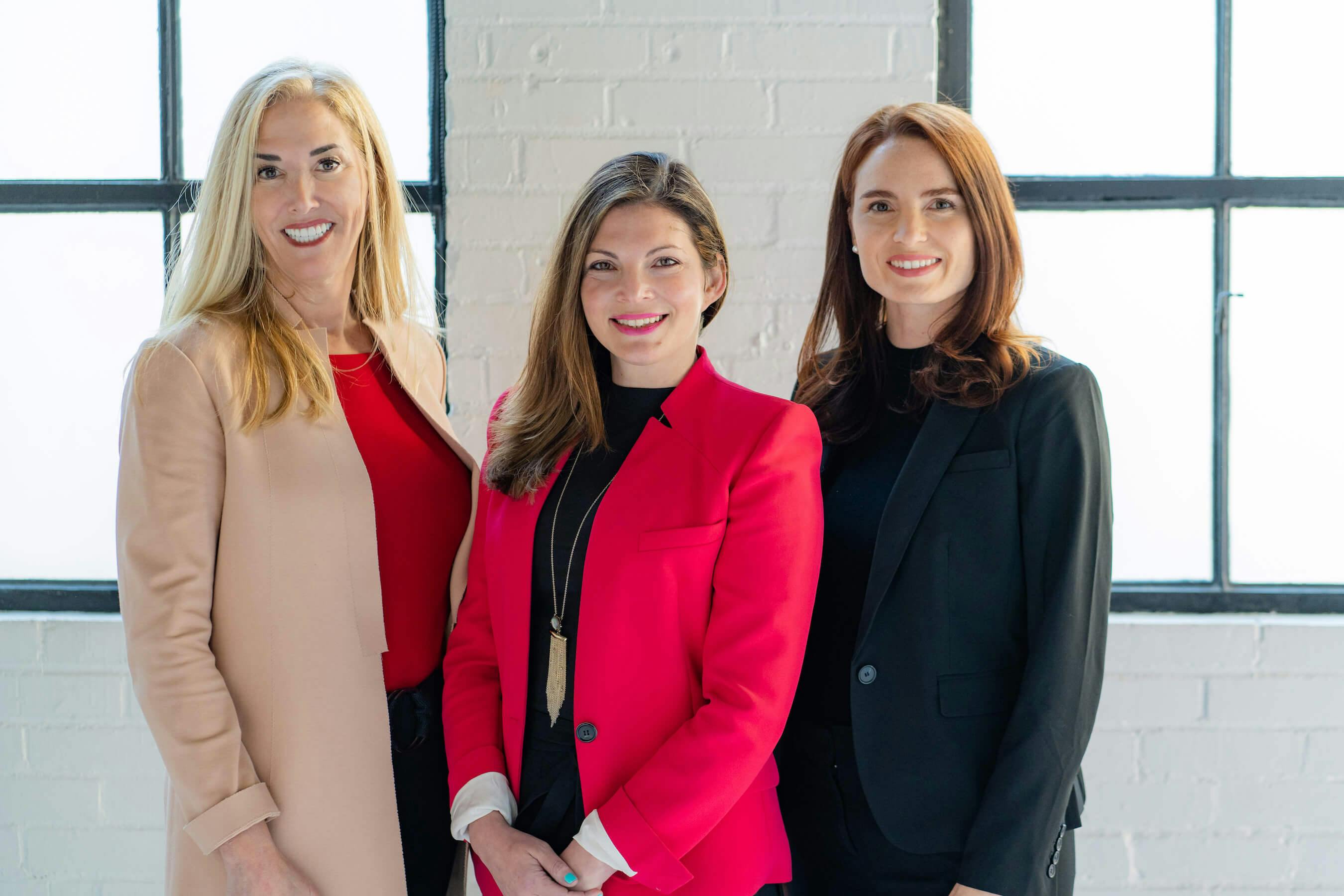
We got a lot of questions at first, like: Are there enough female founders? Why are you just focusing on female founders? All those questions you would typically think we would get. There was a lot of skepticism.
Raising outside the established Silicon Valley networks added another layer of challenge. "We’re based in Houston, we don’t come from the ‘bro club,’ and we have untraditional backgrounds,” Leslie said. But it turned out that their varied paths would serve them well. Diana had built strong relationships in New York through her years on Wall Street and with Monarq; Stephanie had established a network through her work at HAN; Leslie was connected as an angel investor and through years in corporate leadership. “The three of us had really different backgrounds, but that meant that we had three different networks that complemented one another,” Leslie said.
Their commitment to raising investment equally from women and men was an additional obstacle, at first. “We spent a lot of time opening investors’ eyes to venture capital,” Leslie said. “A lot of women we met tended to understand philanthropy but not investing. We did a lot of teaching, one coffee at a time, to help people understand the benefit of funding women founders and the impact and return of that investment.”
But all that coffee talk — it was close to 1,000 meetings between the three co-founders over two years — paid off: A little over 50% of investment in the first $15 million fund came from women (including individual investors, family offices, and endowments). “Ultimately, our story resonated and people believed in us,” Leslie said.
I get the biggest high every time we invest in a company.
Capital is only the beginning
While raising the fund was grueling — and that effort continues today as The Artemis Fund is now raising a second fund with a goal of $50 million — the opportunity to put that money to work drives the co-founders to keep pushing.
“I get the biggest high every time we invest in a company,” Leslie said. But that investment of capital is only the beginning. Serving the portfolio companies as board members and helping guide the early stages of growth is especially rewarding. “Rolling up our sleeves to help raise additional funds, recruit, help with strategy, and introduce the founders to our networks is what is so exciting about leading investments in companies at this early stage.”
To have a front-row seat to the impact of these businesses in the world, fueled by the capital thee need to drive growth, is to see innovation unfold in real-time — the ultimate end-goal of the fund. “Seeing what these women founders are doing to democratize access to wealth as we define it — financial stability and freedom, control of time and schedule, freedom to pursue your professional goals without sacrificing health and safety of your family, choice to spend your wealth on goods and services that match your values, and make a return for investors — that’s the most rewarding feeling,” Leslie said.
What’s also making all three co-founders grateful today? The opportunity to share the journey of bringing the fund to life as a team of three and growing their own business together. “It’s incredibly rewarding to have the opportunity to set the vision and culture for ourselves as we build,” Diana said. “We are hiring great people and getting to work alongside incredible companies. After over 15 years of being told what mold to fit in my early career, it has been so great to get to pick my own partners and set our own agenda.”
But all three co-founders agree that the learning curve has been steep at times. “We are constantly being humbled, learning, and improving at Artemis,” Stephanie said. Leslie agreed: “It can feel relentless. Turns out you're always fundraising as a fund manager,” she joked.
“My partners and I are likely some of the hardest working women you’ll meet,” Leslie added. “All three of us are so persistent and so passionate and totally aligned in our goal to support these founders and achieve returns for our investors."
We’re committed to doing well by doing good.
From the portfolio: Artemis at work in the world
The impact that the companies in The Artemis Fund portfolio are making is already impressive. They are delivering products and services that increase financial inclusion, provide women and families more control of their time as caretakers, and help women invest in their values.
Asking the co-founders to choose a “favorite” company to highlight from the portfolio is hardly a fair ask. “It’s just impossible,” Leslie said. Instead, they like to offer a look at how the range of companies and missions within the portfolio reflects the three key areas they fund: e-commerce, care tech, and fintech. Here are a few examples:
UNest is a purpose-driven fintech company founded by Ksenia Yudina to democratize access to college savings for low- and middle-income families. By streamlining the setup process, providing a very low-cost route for parents and kids to save for educational expenses, and sharing educational resources around investing, the company is providing options for families who may have felt intimidated by the paperwork or priced out of options offered by large financial institutions.
Goodfynd founders Sofiat "Sofie" Abdulrazaaq, Lemaire Stewart, and Kyle Miller created an app to track and find food trucks, which quickly expanded to provide food truck owners a complete platform to manage online orders, sales, and marketing. The platform offers these small business owners — many of whom come from underrepresented groups and have taken less traditional paths to entrepreneurship — access to resources and, ultimately, a path to wealth creation.
Stephanie serves on the company’s board and said they exemplify the resilience and leadership of the founders The Artemis Fund supports. “Sofie is one of the most natural leaders I've ever met,” Stephanie said. “She grew her business — and her customers’ businesses — during the pandemic and donated thousands of meals to those in need.”

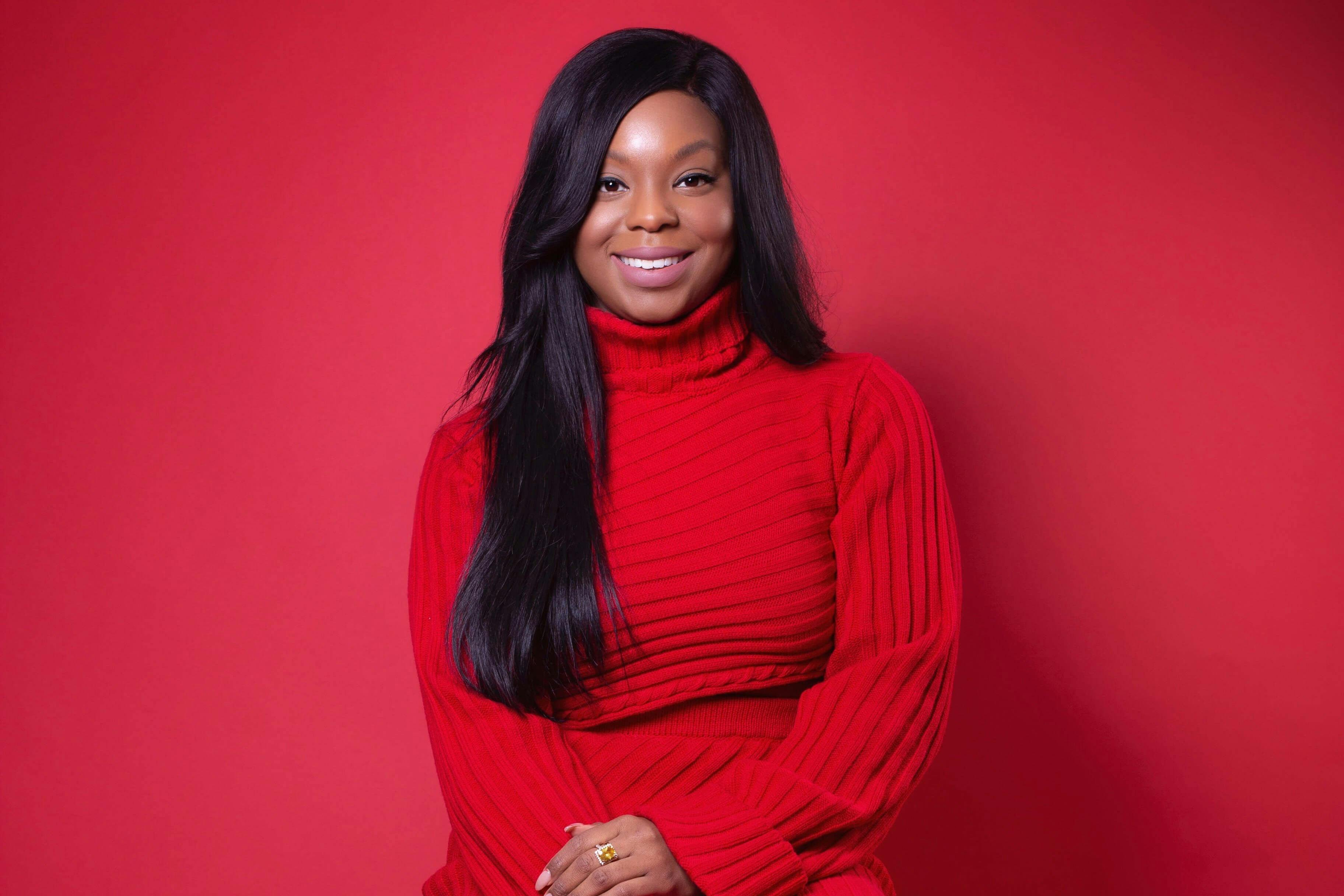
Co-founders Daria Shapovalova and Natalia Modenova launched DressX, a digital fashion company, to counter the waste in current fashion production and encourage sustainability — all while celebrating the creativity and joy of fashion. Common uses for digital clothing include online interviews, one-off photo opps, and online gaming costumes. Customers can purchase, store, and post digital clothing items and create a meta closet.
Leslie said that, in addition to the company’s commitment to sustainability, the business is dedicated to supporting the creator economy in new ways, paving new paths to income for creators. “DressX is providing designers another way to monetize what they do best and potentially transform their passions into their careers.”
HopSkipDrive was founded by Carolyn Yashari Becher, Joanna McFarland, and Janelle McGlothlin as a rideshare platform for kids. The company contracts with families, school districts, and counties to provide kids who need transportation with “CareDrivers.”
As working moms, the three women had struggled to arrange transportation for their own kids to get to activities, an experience that led them to create a safe, dependable solution for families and organizations. Diana said the company, as the only national student transportation platform, is “creating a brighter and more equitable access to transportation for education.” Now active in 18 markets, HopSkipDrive has driven over one million kids.
“While school closures during Covid hurt the business, their mission and incredible support of both the drivers and students continued to resonate,” Diana said. “They are now back and stronger than pre-Covid levels, and we are really excited about their future.”
Learn more about The Artemis Fund’s other exciting portfolio companies here.
“Nothing is impossible when women work together.”
Almost one year after closing their first fund, the co-founders are not only seeing the impact of and returns from the companies they have funded to date, but a steady flow of new founders waiting to get their innovations funded.
“Today, 80% of the women founders we meet are coming to us because we’ve developed a reputation of not only prioritizing women but also providing value as partners to the companies we fund,” Leslie said. Word is spreading among founders and also among other VCs across the country, as well as through incubator and accelerator programs that focus on underrepresented founders.
It’s also fulfilling to be immersed in a community of women who are moving the needle in an industry so long dominated by men. “It’s inspiring to see and feel the power of women supporting one another,” Stephanie said. “Nothing is impossible when women work together. I love seeing our founders win.”
Diana agreed. After years spent in a finance career that lacked a supportive community, she has found her place. “In The Artemis Fund and in the community of women in venture who I now call colleagues and friends, I’ve found a collaborative and uplifting home.”
As they move forward with the hard work of raising the second fund, Leslie, Diana, and Stephanie know the barriers they still face, but they’re focused on and committed to transforming the role women play as founders and funders across the VC system.
“Ideally, we want to see these founders build large, powerful businesses that allow them to give back,” Leslie said. “When they have successful exits, we want to see them reach back and help other founders or other funds that are focused on women or other underrepresented founders or fund managers. The more success that they have, the more women will get funded — that’s the ultimate win.”

